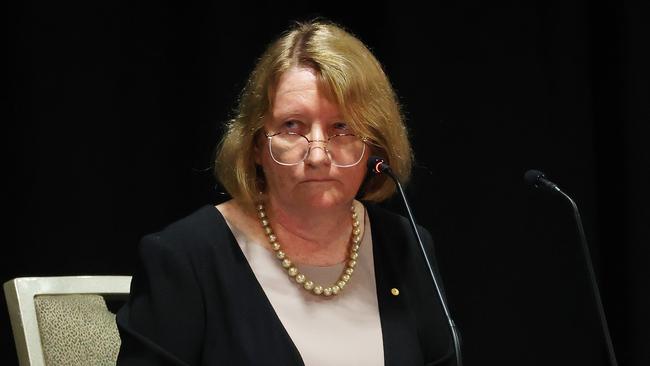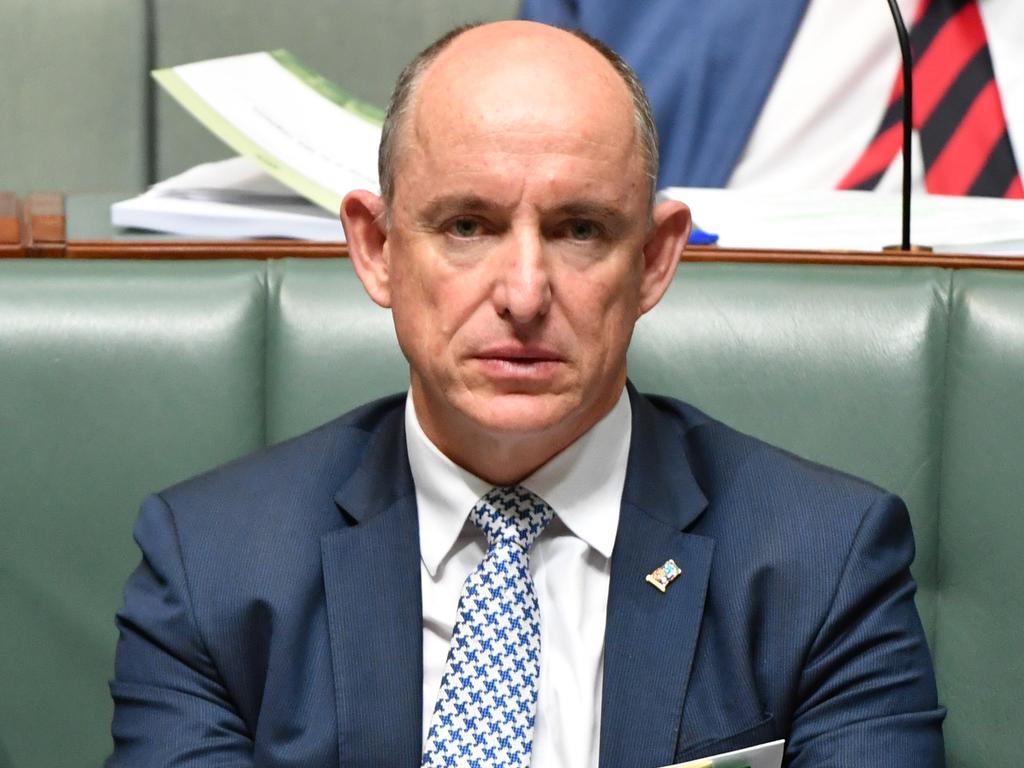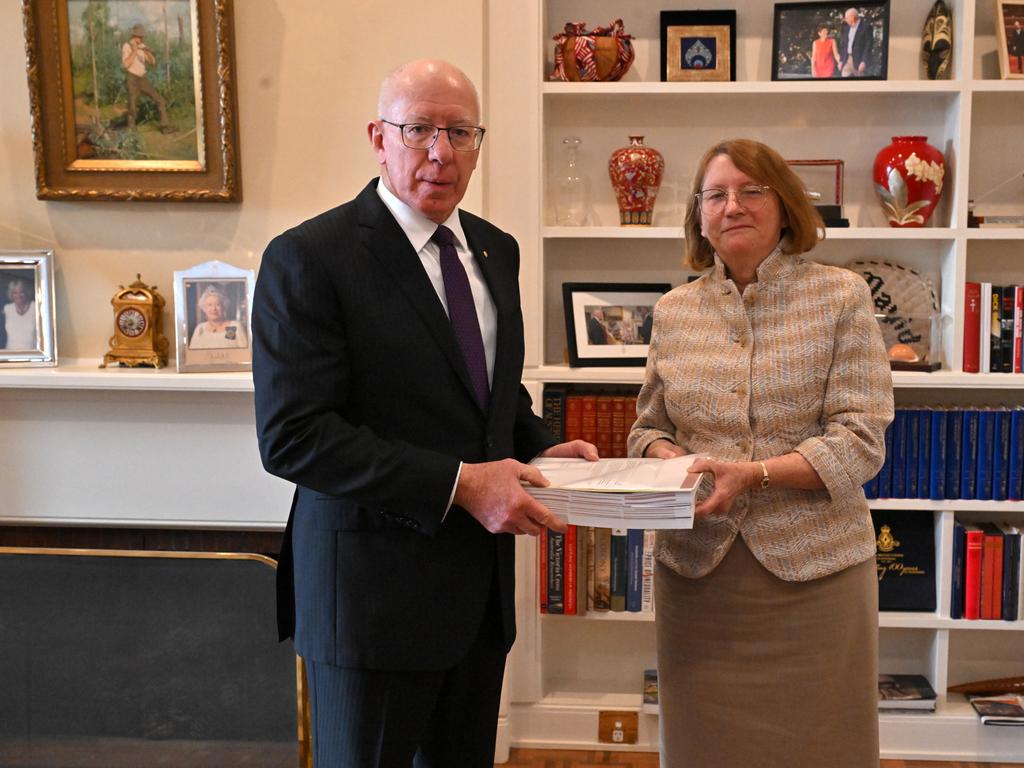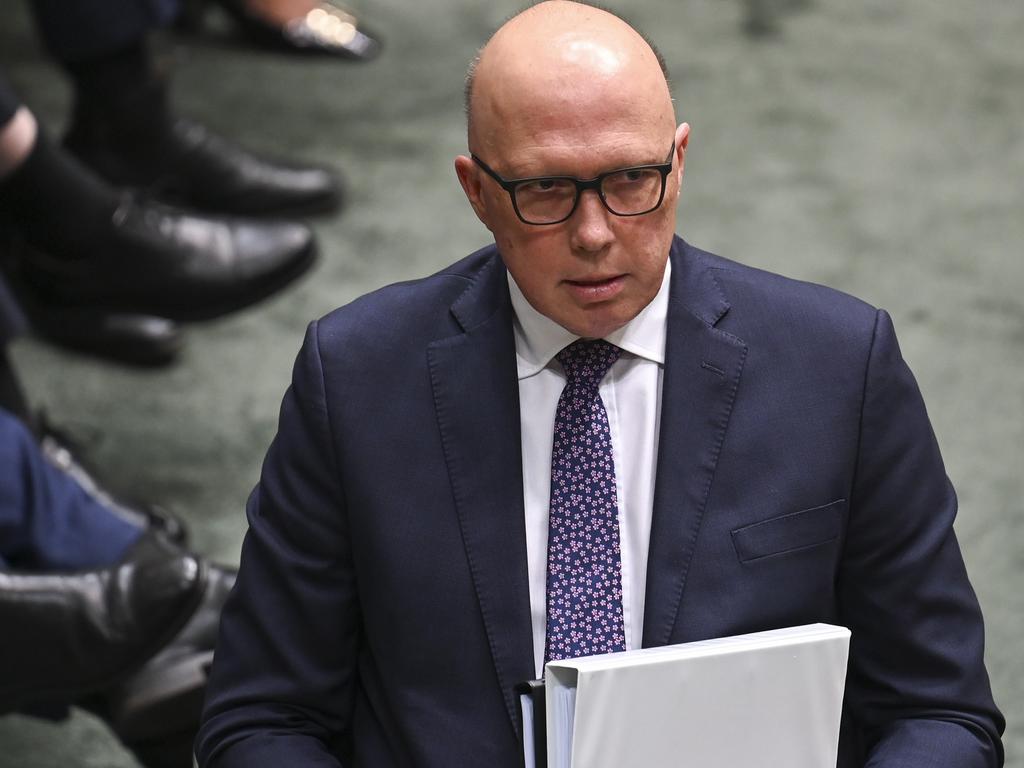‘Cowardice’: Robodebt condemned by royal commission report
Bureaucrats and Coalition ministers showed ‘venality, incompetence and cowardice’ in pursuing the Robodebt scheme, the royal commission finds, but politicians will avoid the harshest punishment.

Bureaucrats and Coalition ministers showed “venality, incompetence and cowardice” in pursuing the Robodebt scheme, the royal commission into the scandal has found, but it appears politicians will avoid the harshest punishment, which instead may go to public servants.
In a damning report released on Friday, royal commissioner Catherine Holmes said she had referred individuals for both civil and criminal prosecution to agencies including the Australian Federal Police, the Australian Public Service Commission, the National Anti-Corruption Commission and the president of the Law Society of the ACT.
The referrals were named in a “sealed” part of the report that has been kept secret.
“I do not propose to name the entities to which I have made referrals, because it would only lead to speculation about who had been referred where, which would almost certainly be wrong,” Ms Holmes said in the report.
But the former ministers most criticised in the report – Scott Morrison, Alan Tudge, Christian Porter and Stuart Robert – say they have not been named in the sealed section nor referred to any law-enforcement agencies.
This is despite government sources telling The Weekend Australian there were up to 20 people referred including former Coalition ministers.
A spokeswoman for the royal commission said people who were named in the sealed document had been notified. This was a separate notice from people who had been adversely mentioned in the publicly released part of the report, which included the former ministers.
Anthony Albanese blasted the scheme as a “gross betrayal and human tragedy” that was wrong and illegal.
The Prime Minister said he was seeking legal advice over whether he could eventually release the sealed section of the report. But he said it was important that no criminal investigations were prejudiced.
“The Robodebt scheme was a gross betrayal and a human tragedy,” he said. “It pursued debt recovery against Australians who in many cases had no debt to pay. It was wrong. It was illegal. It should never have happened and it should never happen again.”
Ms Holmes condemned the Robodebt scheme as “crude and cruel” and “neither fair nor legal” and said it illustrated the “myriad of ways that things can go wrong through venality, incompetence and cowardice”.
The report – spanning more than 990 pages – made 57 recommendations to strengthen the public service and government to ensure the scheme that levelled almost $1.8bn in unlawful debts against 433,000 people did not happen again.
However, the report did not recommend the government establish a compensation scheme for affected victims, saying it would be difficult given hundreds of thousands of people were affected in varying severity.
“At the least, I am confident that the commission has served the purpose of bringing into the open an extraordinary saga,” Ms Holmes wrote.
At its peak, the scheme was sending out 20,000 debt collecting notices a week based on Australian Taxation Office income data averaged across the year, meaning they were incorrectly calculated. The royal commission found a number of people pursued for debts through the Robodebt scheme died by suicide.
The publicly released sections of the report were also highly critical of senior public servants in the old human services and social services departments including then department secretary Kathryn Campbell, her successor Renee Leon, deputy secretary Serena Wilson and chief legal officer Annette Musolino.
“It is remarkable how little interest there seems to have been in ensuring the scheme’s legality, how rushed its implementation was, how little thought was given to how it would affect welfare recipients and the lengths to which public servants were prepared to go to oblige ministers on a quest for savings,” Ms Holmes said.
Government Services Minister Bill Shorten said the previous government and senior public servants “gaslighted the nation”.
“Minister Morrison essentially blamed the Department of Social Services,” Mr Shorten said. “The Department of Social Services senior leadership essentially blamed the Department of Human Services. The Department of Human Services blamed other people in the Department of Human Services.”
The scheme was proposed by Mr Morrison when he was social services minister, as a $1bn budget savings measure designed to force welfare recipients to prove they were not incorrectly given payments, rather than the government proving debts were owed. Ms Holmes said the way income averaging was used was fundamentally unfair by treating people as though they had received income at a time when they had not.
She rejected Mr Morrison’s evidence to the royal commission that income averaging was a long-established practice used by the Department of Human Services, describing it as a “falsehood”.
Ms Holmes accused Mr Morrison of failing to meet ministerial responsibilities as social services minister to ensure cabinet was properly informed about the scheme and to ensure it was lawful. The report alleged Mr Morrison knew that the use of income averaging under the policy proposal was unlawful considering the Department of Social Services had advised the Department of Human Services that legislation was required to use income averaging to collect money from welfare recipients. When the Department of Social Services later reversed its position on the need for legislative change, Mr Morrison chose not to make further inquiries.
Ms Holmes said his failure to ask questions about the change meant that he misled cabinet.
“Mr Morrison allowed cabinet to be misled because he did not make that obvious inquiry … he took the proposal to cabinet without necessary information about what it actually entailed and without the caveat that it required legislative and policy change to permit the use of ATO PAYG data.”
Mr Morrison rejected the findings as “wrong, unsubstantiated and contradicted by clear documentary evidence presented to the commission.”
He defended his actions while in office saying that he acted in “good faith and on clear and deliberate department advice that no legislation was required to introduce the scheme and presented comprehensive evidence to support this position”.
“The findings which are adverse to me are based upon a fundamental misunderstanding of how government operates,” he said. “The commission has suggested, contrary to decisions of the High Court and long standing practice, that a minister cannot rely upon the advice of their own department.”
Former human services Minister Alan Tudge was alleged to have abused his power as a minister by using information about social security recipients in the media to “distract from and discourage” commentary about the scheme’s problems.
The report also levelled allegations against former attorney-general Christian Porter saying he “could not have rationally been satisfied with the legality of the scheme” based on his knowledge of the policy.
Stuart Robert, the final government services minister overseeing Robodebt before it was closed down, also come in for criticism with the commission for knowingly using false figures to defend the scheme and not shutting it down as fast as he could.
All four former Coalition ministers strongly reject the commission’s adverse findings about their role in the Robodebt scheme. The Australian also sought comment from former prime minister Malcolm Turnbull and former human services minister Marise Payne who were also referenced in the report.
The Prime Minister would not be drawn on whether Mr Morrison should resign from parliament, saying his predecessor’s future was a matter for him.
Former Department of Human Services Secretary Kathryn Campbell was found to have failed to act on advice that found the scheme to be unlawful.
The top bureaucrat is currently serving in a $900,000 a year job as an AUKUS adviser.
“When exposed to information that brought to light the illegality of income averaging, she did nothing of substance,” the report said. “When presented with opportunities to obtain advice on the lawfulness of that practice she failed to act.”
The report recommended that the cabinet-in-confidence convention was no longer a justification for governments to use to keep a document secret. The government is yet to formally respond to the recommendations, but Mr Albanese defended conventions that ensured anything discussed in cabinet remain confidential from the public.
The report made a number of recommendations aimed at improving processes within the Department of Social Services and the rebadged human services department, Services Australia.







To join the conversation, please log in. Don't have an account? Register
Join the conversation, you are commenting as Logout